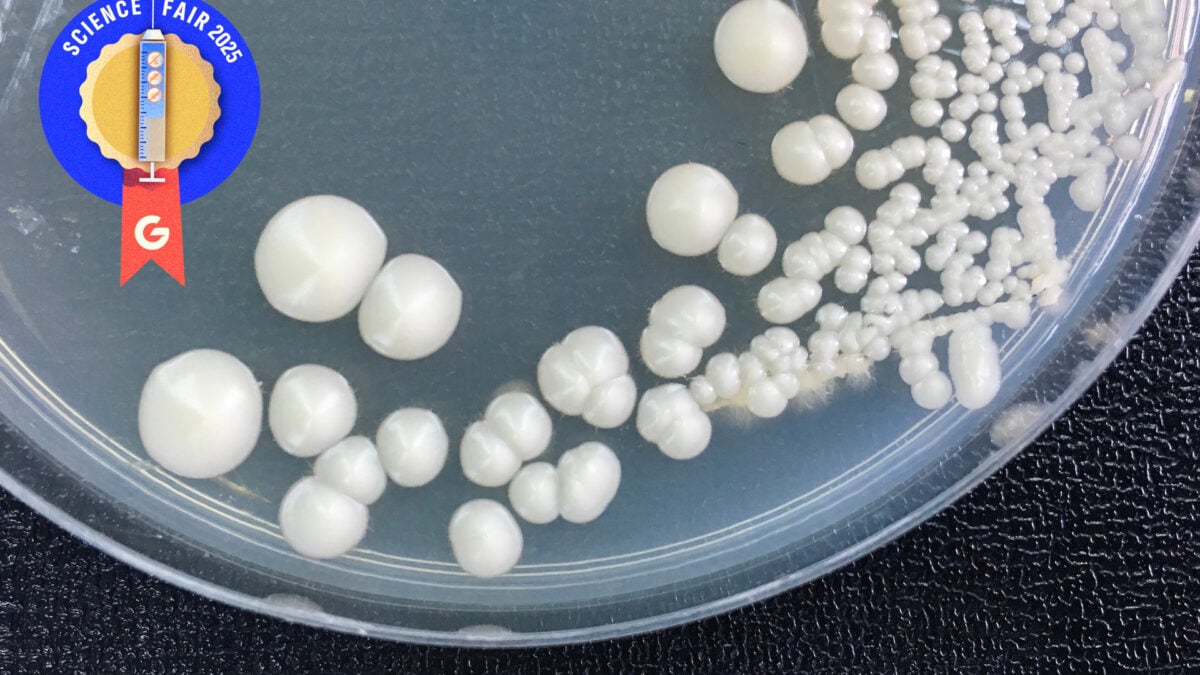
Scientists at the University of Georgia are winners of the 2025 Gizmodo Science Fair for their research into a potential fungus-fighting vaccine for protection against deadly and common fungal infections.
The question
Can we ever proactively defend ourselves from fungi, including those that cause yeast infections?
The results
In a study this June, the researchers’ NXT-2 vaccine appeared to protect mice from a common culprit of vaginal yeast infection, Candida albicans. The team’s earlier research found that NXT-2 was also able to prevent or reduce harm in mice exposed to three of the most common kinds of invasive and life-threatening fungal infections in people. These three groups of fungi alone account for around 80% of such infections.
Why they did it
Compared to viruses and bacteria, humanity is simply less equipped to deal with fungi. We have far fewer antifungals than antibiotics, for instance, and exactly zero approved vaccines to date. Fungi are becoming more resistant to the limited therapies available today, but the team’s research could tip the balance back in our favor.
“One of the reasons why we need a vaccine, in addition to this increasing and enormous clinical burden, is that for a lot of these fungal infections, there’s an increasing frequency of drug resistance,” project leader Karen Norris told Gizmodo. “We and others think that there needs to be a different strategy, and it can’t just be chasing more antifungal drugs.”
Why they’re a winner
NXT-2 is a recombinant protein-based vaccine. It’s intended to train our immune system to recognize a protein sequence found in a wide variety of fungal germs long before they ever infect us. So NXT-2 isn’t just promising because it could be one of the first fungal vaccines ever made, but because it could help protect us from the most medically relevant fungi around—a pan-fungal vaccine, in other words.
While most species of fungi don’t bother us, fungal infections are becoming a larger public health threat over time, owing to factors like climate change and the increasing use of immunosuppressing medications.
A 2024 study estimated that fungi are now contributing to roughly 4 million deaths annually worldwide, double the amount a decade ago. We urgently need more weapons against these infections, and if these early results bear fruit, NXT-2 may provide a substantial and literal boost to our fungal defenses.
“This is something that we are trying to get ahead of before it gets out of hand,” team member Kwadwo Oworae, a molecular biologist and UGA graduate student in Norris’ lab, told Gizmodo. “If you’ve ever seen the first minutes of [HBO show] The Last of Us, it talks about global warming and how fungal infections could be the next pandemic. That’s a little bit exaggerated, but these things are happening. Most of these fungal infections weren’t a problem before, but because of the rising temperatures, they are becoming more adaptable.”
What’s next
Norris and others founded the biotech company NXT Biologics to develop NXT-2 commercially, and they’re taking a two-pronged approach to furthering the vaccine along in human trials. They plan to first test the vaccine in a Phase I trial of women with recurrent Candida yeast infections, a condition that affects over 100 million women globally.
From there, they want to test the vaccine against invasive fungal infections in more vulnerable populations like organ transplant recipients. The company is additionally working to develop lab-made antibodies that can better treat fungal infections. In the lab, the team is continuing to explore just how many different kinds of fungi NXT-2 may work against.
The team
It’s taken more than two decades for Norris and her team to reach this point—a painstaking effort that’s involved a lot of collaboration. At least 30 people have worked directly in her lab over the years, she estimates, including current members Oworae, Daniel Wychrij, and Whitney Rabacal (who all contributed to the latest paper).
The team has also partnered with researchers in other specialties, such as UGA plant biologist Michelle Momany, who offered advice on how to work with Aspergillus, one of the fungi used to test the vaccine. And as the NXT-2 vaccine moves ahead in development, it will undoubtedly require more study sites, researchers, and volunteers to get it past the finish line.
“That’s how science is. It’s very collaborative,” Norris said. “It’s a team sport. And so everyone in my lab has had to find other people to help us with something that we didn’t know how to do. That’s how science works when it’s working at its best.”



